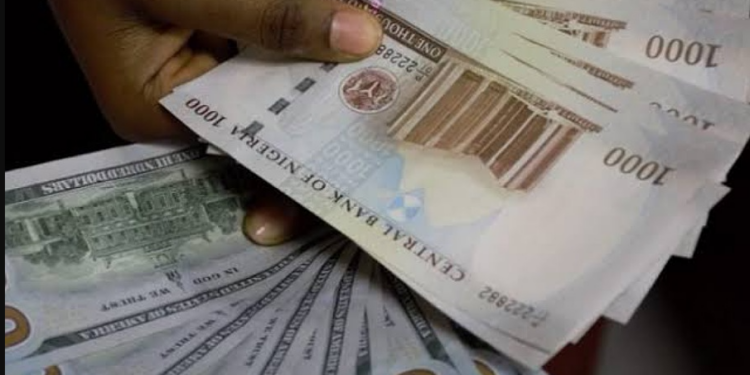The naira clawed back some of its losses against the dollar amid prospects for rate cuts in the world’s largest economy improved, and U.S. core inflation and weaker-than-expected inflation readings in Nigeria.
At Nigeria’s official market, the naira closed at N1459.02 against the greenback, marking a 4.21% gain, according to data from the FMDQ.
This was the first gain after a string of losses, which had pushed the official exchange rate below N1,500/$1. Compared to the N1520.4/$1 reported the day before, the naira appreciated.
Improved dollar supply from eager sellers and buyers at the NAFEM market also contributed to the strengthening of the local currency, with trading volume surging by 124.56% to $289.14 million on Wednesday from $128.86 million on Tuesday.
Weaker MoM Nigeria’s headline rate
Nigeria’s inflation rate also showed a significant level of deceleration month-on-month as the naira rebounded at the key resistance level of N1500/$, ending seven consecutive days of losses at the country’s dynamic official FX market.
The most recent data from National Bureau of Statistics (NBS) highlighted that Nigeria’s inflation data might peak in June. The headline inflation rate in April 2024 was 2.29% on a month-over-month basis, which is 0.73% less than the rate reported in March 2024 (3.02%). According to the NBS, “this indicates that the average price level increased at a slower rate in April 2024 compared to March 2024.” This figure was lower than the 34.2% median expectation of eight analysts surveyed by Bloomberg.
Nevertheless, Nigeria’s inflation rate climbed in April for the sixteenth consecutive month, driven by a tripling increase in electricity prices and higher transportation costs.
Another interest rate hike is still very likely when the CBN’s monetary policy committee convenes in a few days. The CBN chief stated earlier this week that interest rates will stay high for as long as required to control inflation.
Such a narrative has already driven borrowing prices to a record high but has enabled incentives in Nigeria’s money market. The likelihood that the Nigerian currency won’t fall to its lowest point as in February—at least not this month—remains high as traders bide their time until the conclusion of the CBN’s MPC meeting.
Cold U.S inflation data boost naira prospects
According to data released on Wednesday, core U.S. inflation decreased to an annualized 3.6% in April. Although that was in line with market forecasts, it seemed that the circumstances for rate reduction were aligning, especially when combined with flat retail sales data.
Despite being significantly above the Federal Reserve’s 2% target, since it decreased from 3.8% a month earlier, currency traders believed that it would pave the way for a rate drop as soon as September—or possibly even sooner—given the approaching November U.S. presidential election.
Overnight, the U.S. dollar index fell 0.75% through its 200-day moving average, marking the most percentage decline in a single day this year. Tuesday’s early Asian trading saw it at 104.17, the lowest level in five weeks.












